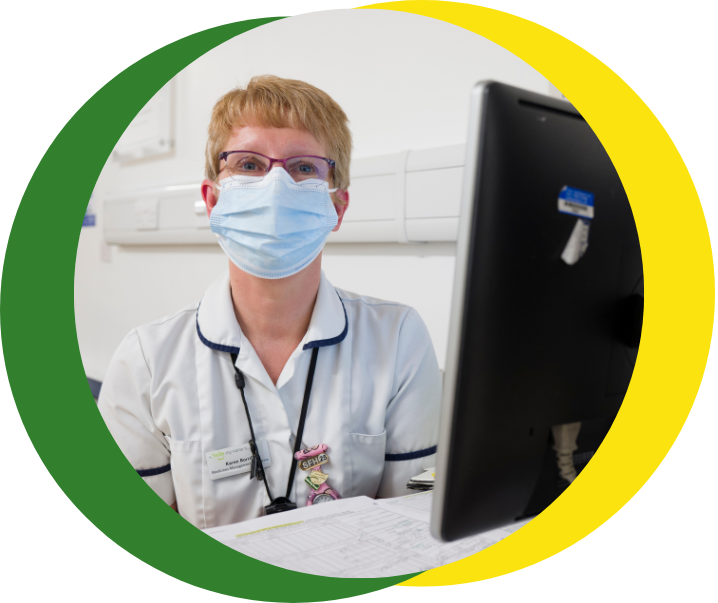Virtual Wards

What is a Virtual Ward?
Thousands of patients across Nottingham and Nottinghamshire are being cared for through our Virtual Wards programme. Virtual Wards are a safe and efficient alternative to NHS care that usually takes place in a hospital setting and they are enabled by utilising the latest technology.
Virtual Wards will support patients who would otherwise be in hospital, to receive the care, monitoring and support they need in the place they call home. This includes either preventing avoidable admissions into hospital or supporting early discharge out of hospital. The initial phase of the initiative will focus on early supported discharge out of hospital, whilst remaining under consultant care.
Further information
New state-of-the-art technology will see some patients across Nottingham and Nottinghamshire with respiratory infections, a flare up of a long-term lung condition or recovering from some types of surgery, monitored from the comfort of their own home rather than in hospital.
Patients who are eligible will be referred to a ‘virtual ward’ – a safe and efficient alternative to an NHS hospital bed and means patients can be treated in the place they call home.
Virtual wards can make us of technology to support patients who would otherwise be in hospital, to receive the care, monitoring and support they need in the place they call home, which frees up hospital beds for patients who are most in need of acute care.
Patients who are suitable to be referred to a virtual ward will usually have a health concern that needs regular monitoring and on-going treatment, such as an acute respiratory infection, a chronic lung condition or, if at Nottingham University Hospitals, a postoperative wound care and intravenous antibiotics that they would usually receive in hospital. However, with the right care and support, these patients can now receive the care they need at home safely and conveniently.
Patients in virtual wards will be supported and monitored on a daily basis using remote monitoring apps, utilising technology platforms and using medical devices such as pulse oximeters, which record vital health data about blood oxygen saturation and heart rates. Patients can also receive face-to-face care from teams based in the community.
To find out more you can read an article in our news section on virtual wards here.

